Younger people are being urged to get vaccinated as more than half the population have had one dose.
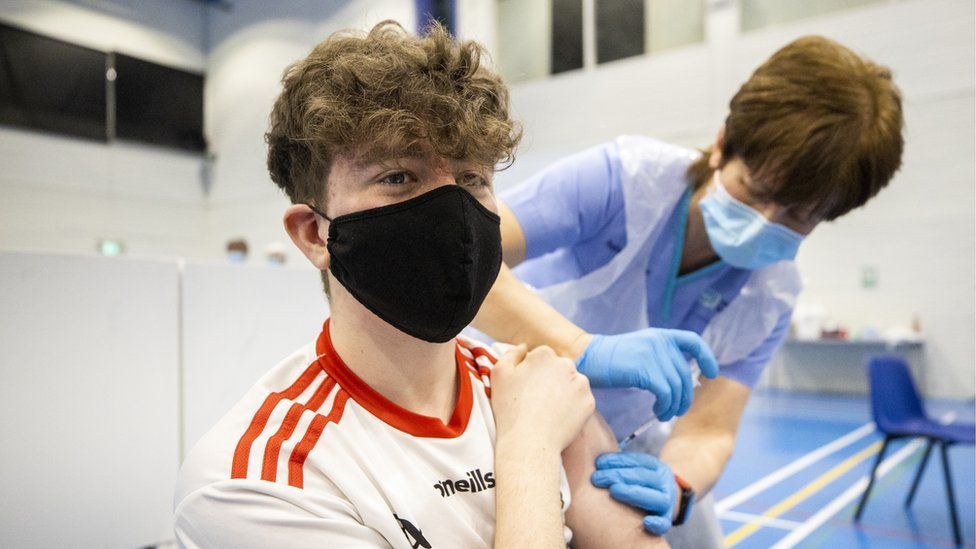
image copyrightLiam McBurney
A new campaign is being launched to encourage younger people to get the Covid vaccine when their turn comes, as the rollout continues down the age ranges.
The Department of Health has released a series of photos documenting the NHS’s largest-ever vaccination programme.
They show vaccines given in care homes, cathedrals, museums and stadiums.
Health Secretary Matt Hancock said 45.5 million doses had been administered so far, but “the battle is not yet over”.
More than 12 million people have now received both doses of a Covid-19 vaccine, while 33.5 million have had at least one dose.
It means half the entire UK population, estimated at 66.7 million, have now received a first dose.
The UK recorded another 2,061 confirmed cases on Saturday and a further 32 deaths.
The latest campaign aims to encourage under-50s to take the vaccine, following research that suggests younger people are more likely to be hesitant.
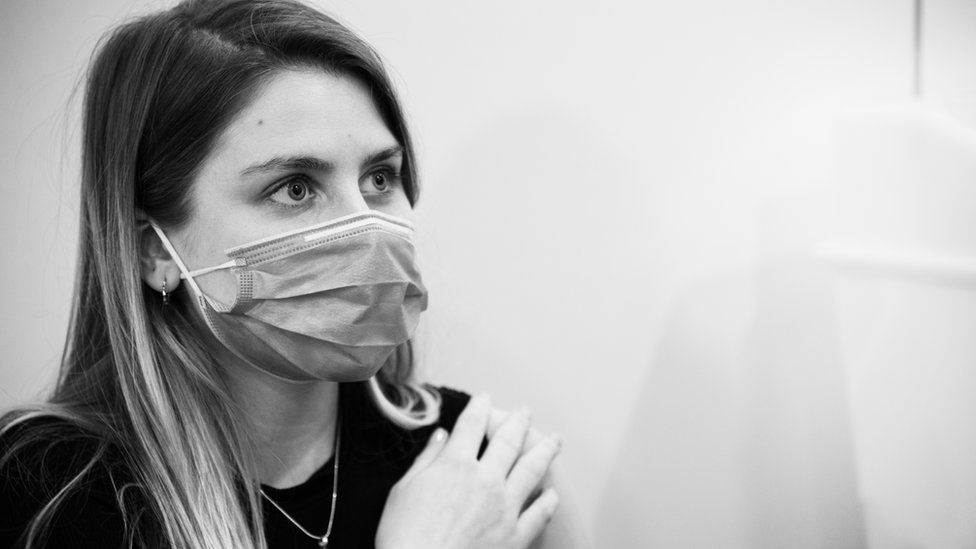
image copyrightJude Palmer
Although 94% of all adults in the most recent survey by the Office of National Statistics felt positively about the vaccines, about one in eight 16 to 29-year-olds said they were hesitant, the highest such finding among all age groups.
Vaccine hesitancy is also higher among black people and people in more deprived areas, although the numbers saying they are hesitant has been falling in every group, the survey suggested.
Among the people caught on camera in the photo project was 25-year-old Alice Tooley, who was vaccinated early in the rollout because of her frontline work with vulnerable adults for a refugee charity.
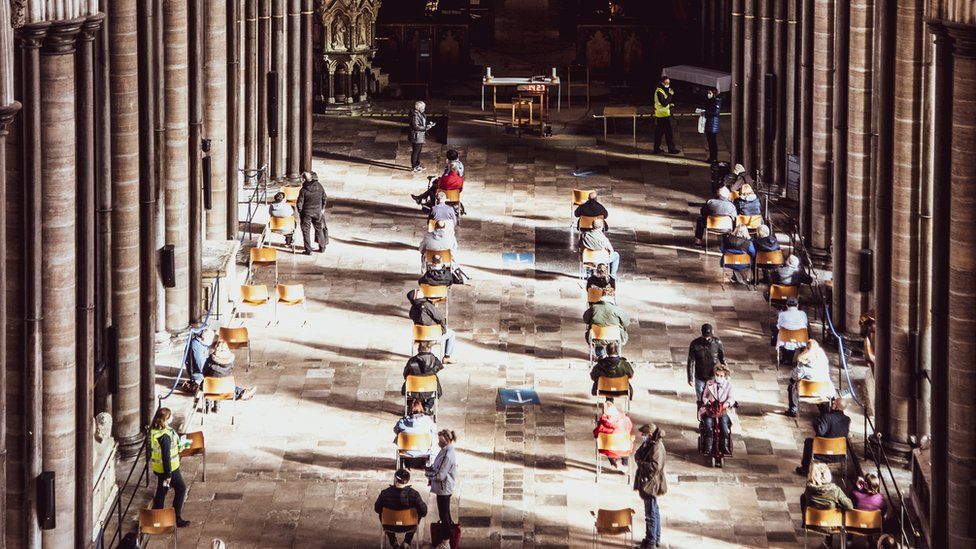
image copyrightJude Palmer
As younger people get invited to have their jab, she said: “I hope they jump at it the way I did so, as a collective, we all play our part in getting back to a more normal way of life.”
Documentary photographers and filmmakers set out across the UK in February and March to capture the immunisation programme in action, travelling to hospitals, mobile vaccination units, care homes and some of the more unusual vaccination sites such as Salisbury Cathedral and the Science Museum in London.


Photojournalist Jude Palmer said it had been a privilege to document the “smiles, laughs, nerves, and sighs of relief as we get one step closer to a more normal way of life”.
Among the people they photographed was Dr Gavin Chestnutt, a GP at Ballycastle Medical Practice, who took his vaccine supplies on the ferry to Rathlin Island – Northern Ireland’s most northerly point – to immunise the community there and ensure the elderly population did not have to travel in bad weather.
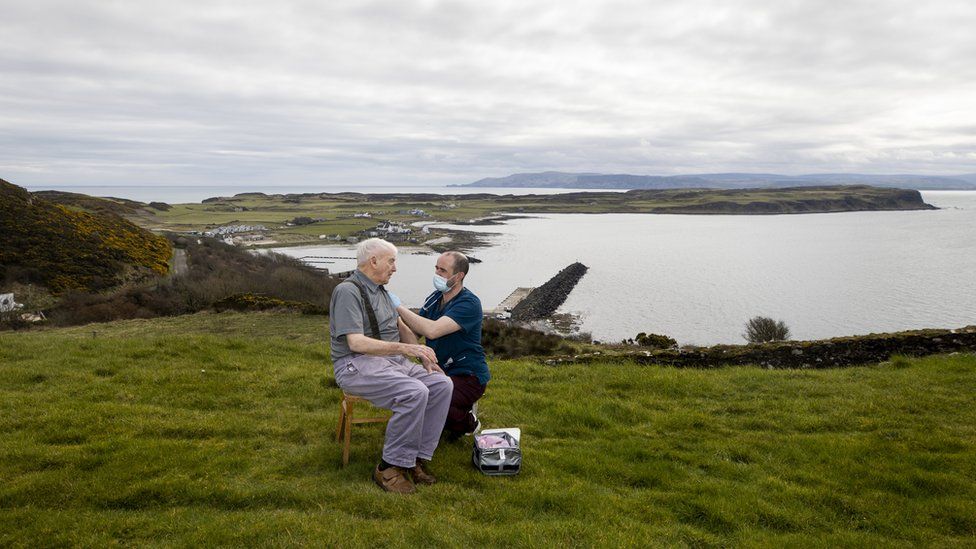
image copyrightLiam McBurney
Dr Chestnutt, who is also a part-time farmer, was photographed vaccinating a 92-year-old man in his back garden, looking out over the coastline.
The 42-year-old said it had been an honour to witness people’s “physical relief” as they were protected from Covid-19.
“Most overwhelming has been to see how grateful everyone has been for getting their vaccine and finally seeing some light at the end of the tunnel,” he added.
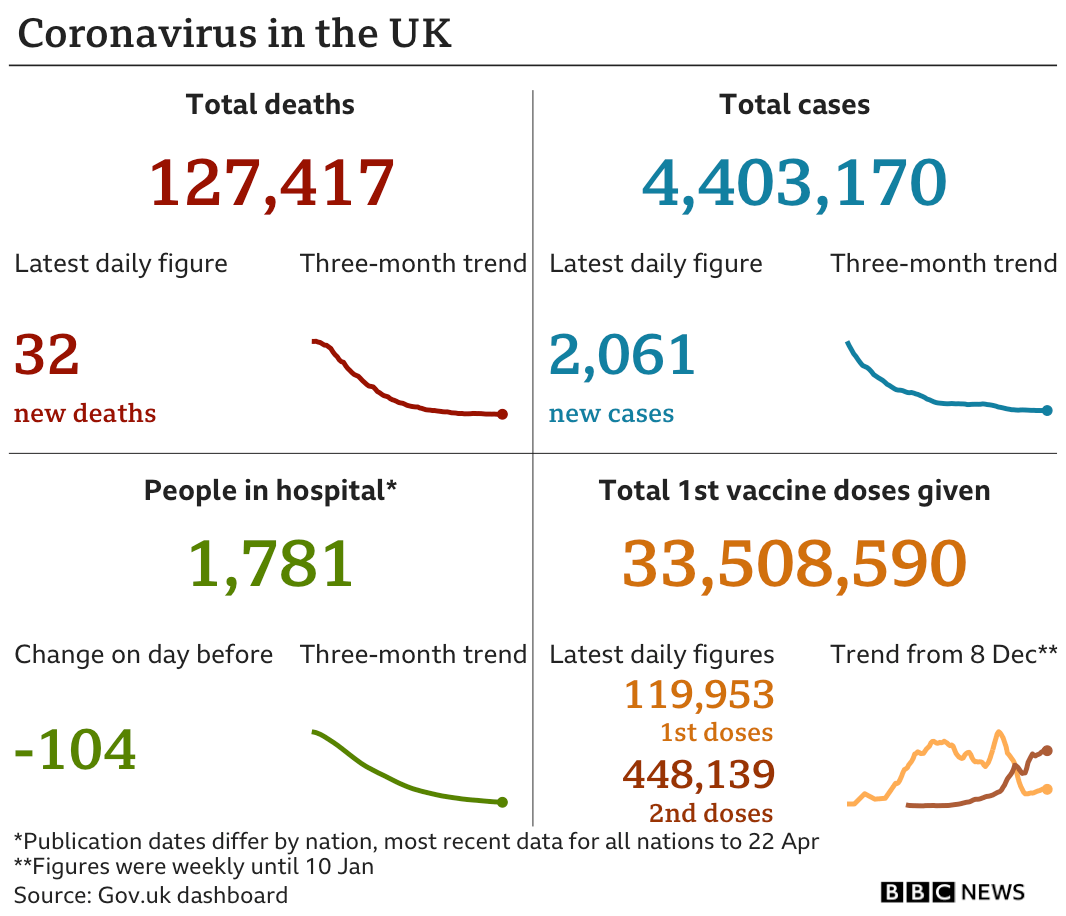
Meanwhile, 8,000 football supporters will be at Wembley later for the Carabao Cup final between Manchester City and Tottenham – the biggest attendance at an outdoor sports event since the first lockdown in March last year.
The game is part of the government’s official test programme to work out the best way for big crowds to return to venues.
It comes as 22 anti-lockdown scientists and academics have written an open letter calling for face masks and social distancing to end in June.
The letter, published in full on the Daily Express website, says more weight should be given to the success of the vaccines and less to what it calls the “theoretical” risk of new variants or a new surge in infections.
It also urges the government to scrap plans for vaccine passports, along with mass community testing in favour of a more targeted approach.
The government has already announced it hopes to end all legal limits on social contact in England on 21 June at the earliest and the prime minister has said there is nothing in the data to suggest this will not be the case.
But some scientists have suggested people could still be asked to wear face coverings and socially distance for several years as other countries are yet to complete their vaccination programmes.
BBC health correspondent Katharine Da Costa says many of the signatories to the letter had previously called for lockdowns to be abolished in favour of shielding the vulnerable, a strategy strongly criticised by the wider scientific community.

